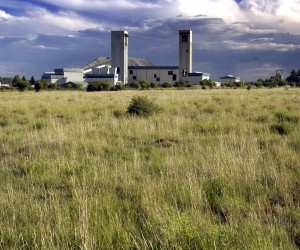The 2013 Investing in African Mining Indaba held in Cape Town earlier this year, provided compelling arguments in favour of a more integrated and sustainable approach to mining in Africa, with a view to unlocking the enormous growth potential on the continent, says GIBB general manager for Power and Energy Sector, Paul Fitzsimons.
Now in its 19th year, the mining indaba provides a platform for various mining companies and projects to showcase their work in Africa and attract interest from the investment community. It is also an opportunity to highlight future trends in mining and for industry leaders to engage in robust debate around the socio-political and economic challenges the industry faces on the continent.
Fitzsimons says despite these challenges, a more sustainable approach to mining has the ability to drive infrastructure and resource development on the continent, not only to the benefit of the mines, but also the communities they operate in.
He acknowledges that there needs to be a more inclusive approach to mining in Africa. “In the past the people who benefited most were those who supplied the mines or were employed by them. Many of those on the periphery experienced only the disadvantages associated with mining such as dust pollution or higher prices in the stores,” he says.
Not only are mining companies being held accountable for sustainable development, Fitzsimons says they are multi-national organisations with long investment horizons (sometimes as long as 100 years). “Having a sustainable plan in place is not an altruistic ambition, it’s a business imperative. Mining companies need access to a competent workforce over a long period of time and they need the accompanying infrastructure to ensure success.” Fitzsimons says many of the keynote speakers at the Mining Indaba, including Mineral Resources Minister, Susan Shabangu; Anglo American’s outgoing CEO, Cynthia Carroll; Chamber of Mines Senior Executive, Roger Baxter; and AngloGold Ashanti CEO, Mark Cutifani, were positive about the future of the industry in South Africa and Africa while acknowledging potential pitfalls and challenges.
“Of course, the Marikana tragedy was fresh in everyone’s minds and Minister Shabangu was quick to urge the country and industry to assimilate the lessons learned going forward. Roger Baxter called for a new social contract and better stakeholder engagement between governments and mining populations.”
“Importantly, Minister Shabangu said the South African government was no longer interested in the nationalisation of mines, which has been a major concern for potential investors,” says Fitzsimons.
He stresses the need for a sustainable approach to infrastructure development. “Mining companies need to be able to say – here’s the power plan, here’s how we envisage the road infrastructure, here’s the education plan. It can no longer be a unilateral decision-making process. All developments will need to be conducted on a multilateral, multi-sector and multi-user basis.”
This was, for Fitzsimons, the major take-out from the four-day conference. “It’s about pulling together all the threads in an integrated and holistic way. And this is where GIBB is well positioned to play a significant role. Our 'one-stop shop' offers the integrated capability needed to solve a multitude of infrastructure challenges – as they relate to a specific mine (or development node) – from roads, railways, schools, hospitals, power and housing, to sewerage and water.”






